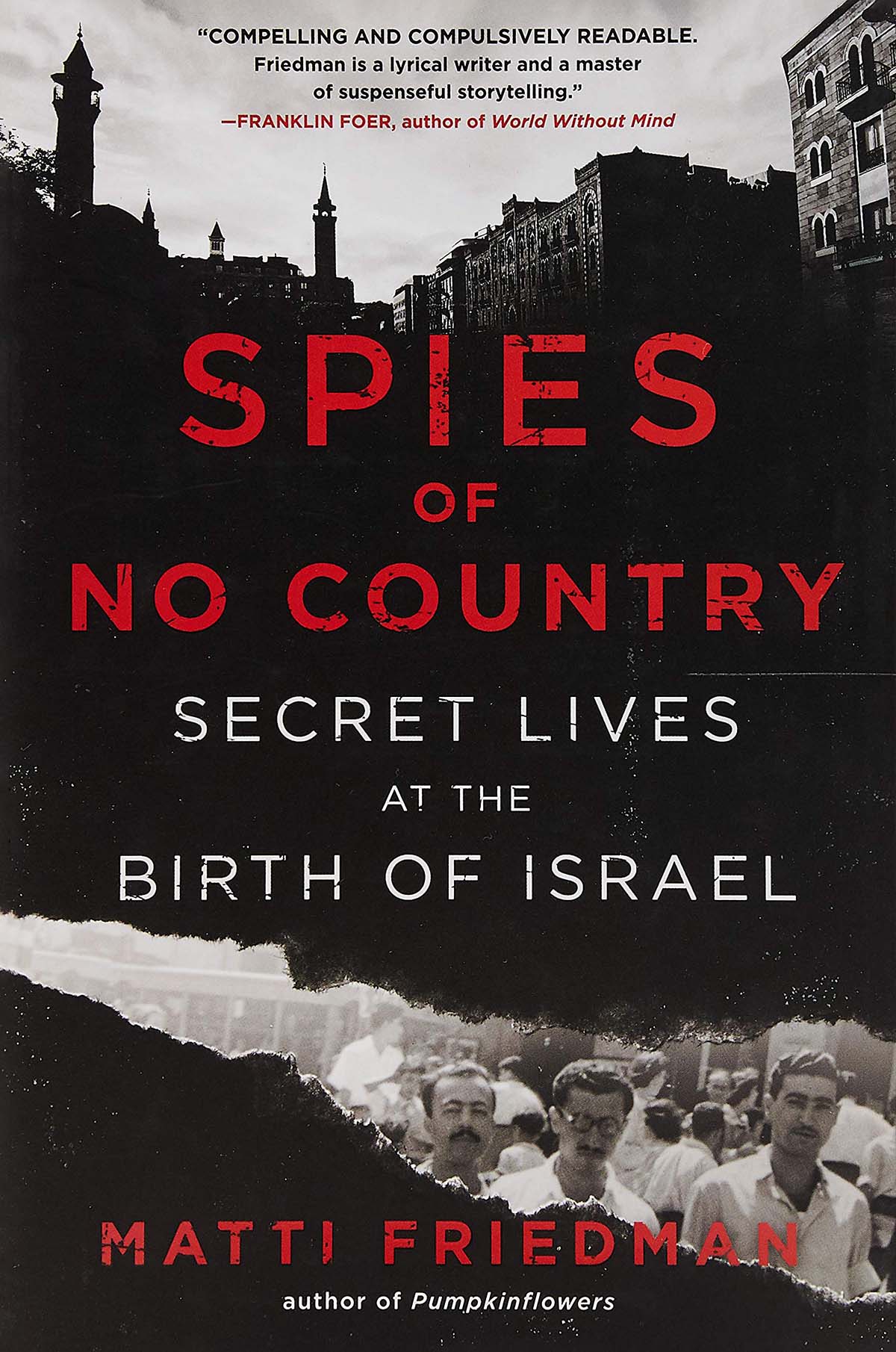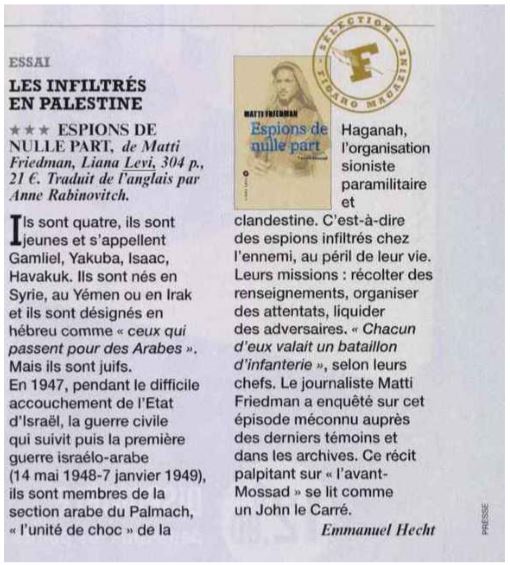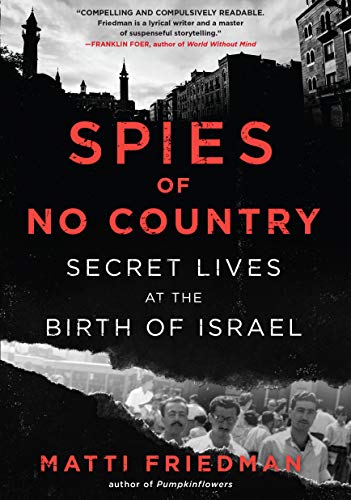


Though they were merging with their surroundings, the conundrum of their identity was something they could not escape.

This, further highlights how the book navigates through the multiple identities of the recruited agents. Friedman emphasizes on the importance of “the creation of an agent who could convince you he was one of you” in order to succeed in their mission.

While cautiously describing each situation, Friedman often interjects while narrating the story and provides a third person view of the situation at hand in the book. Starring complicated characters with slippery identities moving in the shadow of great events, Spies of No Country tells a very different story about what Israel is and how it was created.Though none of them faced the dilemma of adapting to Arab society and consuming the identity of the country that they are stationed at, there was perpetual anxiety of being ensnared at any juncture. Of the dozen men in the unit at the war's beginning, five were caught and executed.Įspionage, John le Carré once wrote, is the "secret theater of our society." Spies of No Country is not just a spy story, but a surprising window into the nature of Israel-a country that sees itself as belonging to the story of Europe, but where more than half of the population is native to the Middle East. They fled to Beirut, where they spent the next two years under cover, sending messages back to Israel over a radio antenna disguised as a clothesline. When the first Jewish-Arab war erupted in 1948 and Palestinian refugees began fleeing the fighting, a small number of Section agents disguised as refugees joined the exodus. Consisting of Jews from Arab countries who could pass as Arabs, it was meant to gather intelligence and carry out sabotage and assassinations. The tiny, amateur unit known as the "Arab Section" was conceived during WWII by British spies and by Jewish militia leaders in Palestine. In his third non-fiction book, Matti Friedman introduces us to four unknown young men who are caught up in the fraught events surrounding the birth of Israel in 1948 and drawn into secret lives, becoming the nucleus of Israel's intelligence service. From the award-winning and critically-acclaimed author of Pumpkinflowers, the never-before-told story of the mysterious "Arab Section": the Jewish-"Arab" spies who, under deep cover in Beirut as refugees, helped the new State of Israel win the War of Independence.


 0 kommentar(er)
0 kommentar(er)
